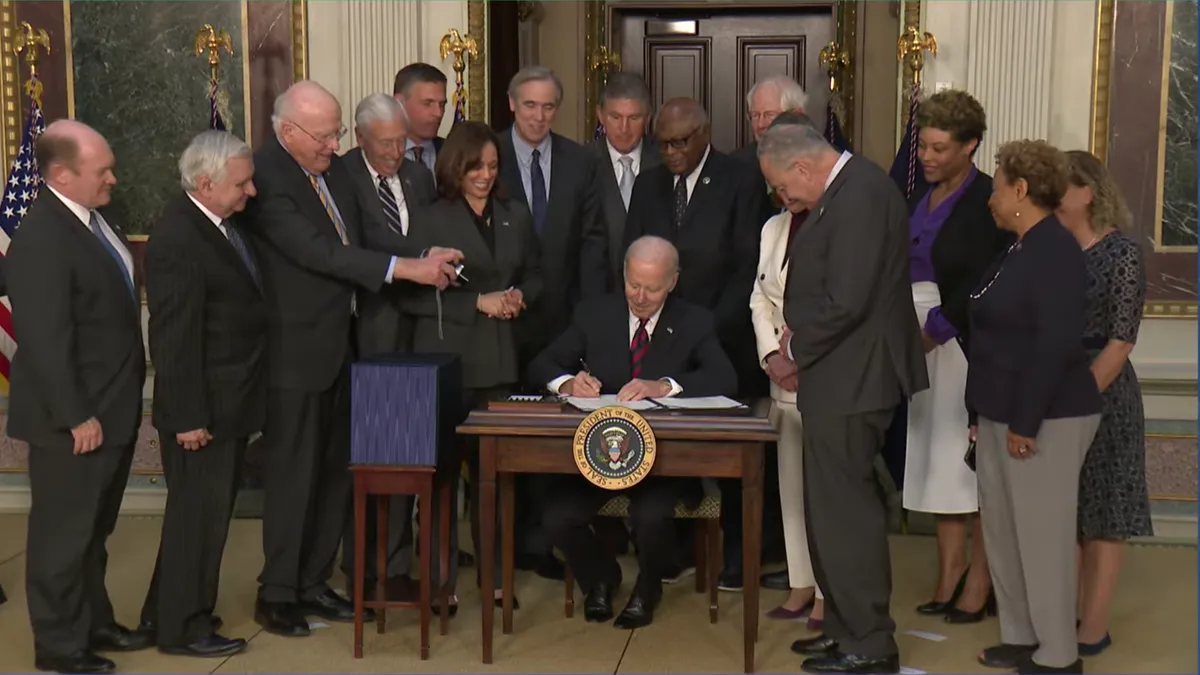Dive Brief:
- The $1.5 trillion fiscal 2022 spending package President Joe Biden signed this week earmarks $76.4 billion in discretionary appropriations for the U.S. Department of Education, nearly $3 billion more than the previous year's budget.
- About $3 billion for higher education programs and a separate $25 billion for federal student aid will go to the Education Department. A $400 increase will bring the maximum Pell award to $6,895 for the 2022-23 year.
- The spending package also sets aside $885 million to assist historically Black colleges and other minority-serving institutions, $96 million more than the previous year. HBCUs have been subject to continual bomb threats in recent months.
Dive Insight:
Biden's budget represents a stark departure from the Trump administration's proposals. They called for major spending cuts for the Education Department, which Congress largely disregarded.
However, the package may disappoint some college affordability advocates who have pressed the White House to double the Pell Grant, which has significantly lost its purchasing power over time. The grant once offset about three-quarters of the cost of attending a public four-year college in the 1970s. Now it covers barely a third of expenses.
Doubling the grant would put the maximum award above $13,000 a year.
Still, the $400 boost received some praise crediting it as the largest increase in more than a decade. The National College Attainment Network still plans to push for doubling Pell but said the new spending is "a step in the right direction."
The budget also bolsters other student aid programs, including $895 million for the Federal Supplemental Educational Opportunity Grant, a $15 million increase from the previous year's spending. This funding is reserved for undergraduates who demonstrate extraordinary financial need.
The appropriations package also dedicates $1.2 billion for Federal Work Study, $20 million more than last year.
And it tweaks the FAFSA Simplification Act, legislation passed last year making changes to the Free Application for Federal Student Aid, such as replacing the index used to calculate aid.
The budget now delays implementation of the FAFSA Simplification Act from July 2023 to July 2024, after the Education Department indicated the original time frame was too short to implement all the changes.
The $3 billion for other higher ed programs included in the spending package represents a $452 million increase from fiscal 2021.
This includes $363 million for HBCUs, $183 million for Hispanic-serving institutions and $44 million for Tribally controlled colleges and universities.
Biden will likely release his fiscal 2023 proposal soon. The appropriations process faced significant delays this cycle and the next fiscal year for the federal government begins Oct. 1.













